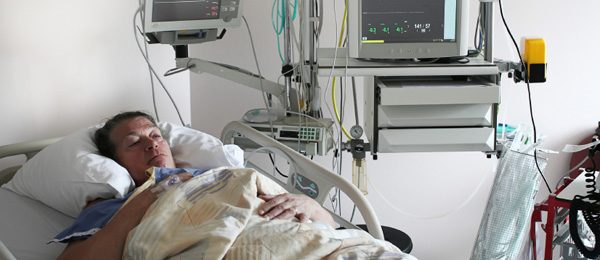
Health system ‘failing’ cardiac patients
Health systems across Australia are failing cardiac patients, with leading specialists estimating 51,000 heart attacks and 962 strokes each year may be prevented if people receive and take-up better follow-up care.
The National Secondary Prevention Summit hosted by The George Institute for Global Health in Sydney today, will set a course of action to improve the uptake, availability and cohesiveness of heart attack prevention services across Australia.
“Our health system is failing survivors of a heart attack when it comes to ongoing prevention of new events,” Tony Thirlwell, Heart Foundation CEO - NSW, said.
“As a result people are dying from heart attacks and strokes that could largely be avoided,” Mr Thirlwell said
Dr Clara Chow, Head of The George Institute’s Cardiac Program and cardiologist at Westmead Hospital said only one in four heart attack patients attend existing prevention programs.
“The Summit will address potential solutions and develop a series of recommendations to be presented to the Federal Government early next year,” Dr Chow said.
Dr Chow, co-chair of the Summit, said studies indicate people who participate in prevention programs reduce the risk of a second heart attack by more than 25 per cent.
Studies suggest that referral rates to existing programs are low, with less than one in three people referred attending, and fewer participating for the full period.
“Traditionally, preventative programs, such as cardiac rehabilitation, have been hospital-based,” said Dr. Julie Redfern, co-chair of the Summit and Senior Research Fellow at the George Institute.
“Fundamental change is required. More accessible and flexible programs – such as using telephone or other electronic media – can be tailored to individual lifestyles and are likely to increase uptake across Australia,” Dr Redfern said.
“Heart attack survivors play a vital role in their ongoing care. There is clear evidence that people who make healthy lifestyle changes and take their medication as prescribed do better than those who do not,” Dr Redfern said.
“People who don’t improve their lifestyle and take their pills after a heart attack are approximately four times more likely to have another heart event or die within a year or two,” Dr Redfern said.
“Remarkably, those patients at greatest risk of having a new heart attack or stroke are the least likely to attend prevention programs, especially in our most vulnerable populations, such as Aboriginal and Torres Strait Islander people and older Australians,” Dr Redfern said.
The Summit will include representatives of more than 30 government, health, research and consumer organisations around Australia including the Royal Australian College of Physicians, Royal Australian College of General Practitioners the Australian Cardiovascular Health and Rehabilitation Association, the University of Sydney and the Cardiac Society of Australia and New Zealand.
The Summit has been designed by The Cardiovascular division of the George Institute for Global Health, in consultation with an Executive Committee and has received financial support from Astra Zeneca and non-financial support from the Heart Foundation.







